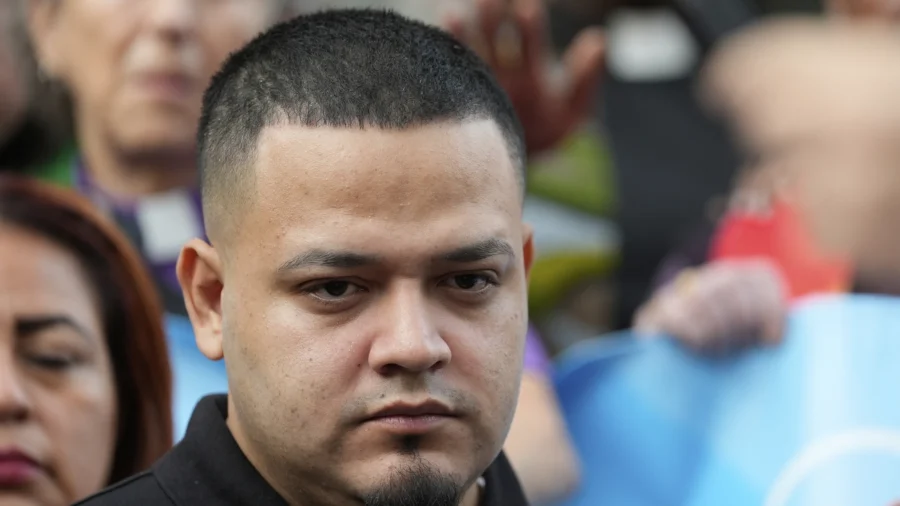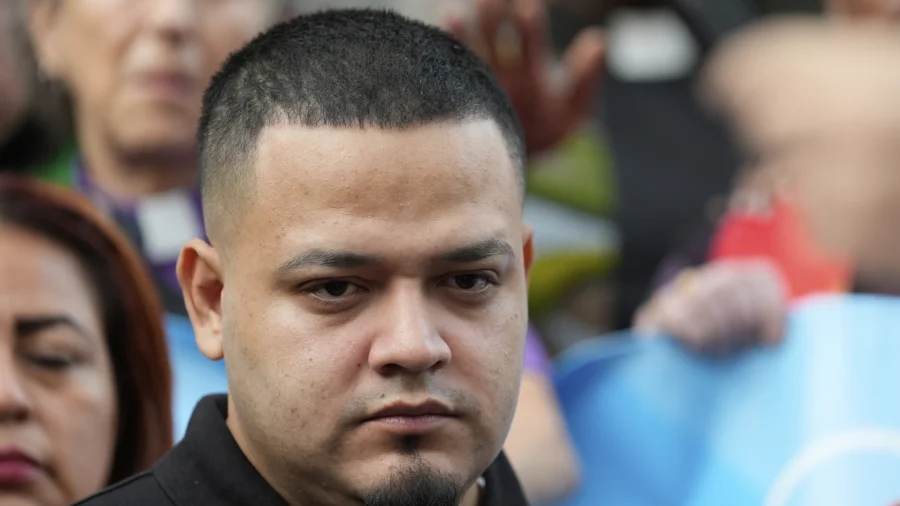
GREENBELT, Md.—A federal judge heard arguments on Oct. 10 as lawyers for Salvadoran national Kilmar Abrego Garcia pressed for his release from Immigration and Customs Enforcement (ICE) custody.
His attorneys argued that U.S. immigration laws allow illegal immigrants to be detained for up to 90 days, but only pending deportation. Abrego Garcia has been in one form of custody or another since his arrest in March, they said.
“The real aim of the government, the improper aim, is a punitive one,” his attorney, Andrew Rossman, told the court.
Attorneys for the government argued that the countdown of 90 days should begin from Aug. 25, when he was last taken into ICE custody.
U.S. District Judge Paula Xinis, for the District of Maryland, called Oct. 10’s hearing to learn what steps the U.S. government has taken, and plans to take, to deport Abrego Garcia. She had previously blocked him from being deported to Uganda; the government had also told the judge that the African nations of Ghana and Eswatini were also being considered.
“He cannot be deported to Ghana,” Ablakwa wrote. “This has been directly and unambiguously conveyed to U.S. authorities.”
During the hearing, John Schultz, a deputy assistant director for ICE removals, told the court that the notice about Ghana had been sent “prematurely.” He had also been informed that the Uganda deal fell through, he said.
Schultz said talks with Eswatini in Southern Africa were still ongoing, though that country had also refused initially. He said Abrego Garcia could be deported in as little as 72 hours if the country agreed and all legal hurdles were cleared.
Toward the end of the 6-hour hearing, it became clear that the government had also misunderstood Abrego Garcia’s position on being deported to Costa Rica.
The country had agreed to accept him on Aug. 23, but there was confusion between his attorneys and the government, since he had listed it among 22 places he feared being deported.
His attorney told the court that this was an error on their part, as that list was drafted before Costa Rica’s offer. He also said his client had filed a motion to reopen his immigration proceedings, with the plan to designate Costa Rica as Abrego Garcia’s new destination.
“Why can’t the U.S. government just send Mr. Abrego Garcia to Costa Rica tomorrow?” Judge Xinis asked.
Justice Department attorney Drew Ensign said he couldn’t make that decision, but that the clarification might “change the analysis.”
Xinis told the court that she will release a decision soon.
Abrego Garcia was detained by immigration authorities in March and sent to El Salvador’s maximum security prison Terrorism Confinement Center, along with a plane full of other deportees.
It was later revealed that an immigration judge ruled in 2019 that he could not be sent back to his native country, because he might face threats from rival gang members there. Xinis ordered his return on April 10, and the U.S. Supreme Court eventually backed that ruling.
Abrego Garcia also faces charges of human smuggling and is set to stand trial in January. U.S. District Judge Waverly Crenshaw of Nashville, Tennessee, will hear arguments to dismiss that case on Nov. 3.


